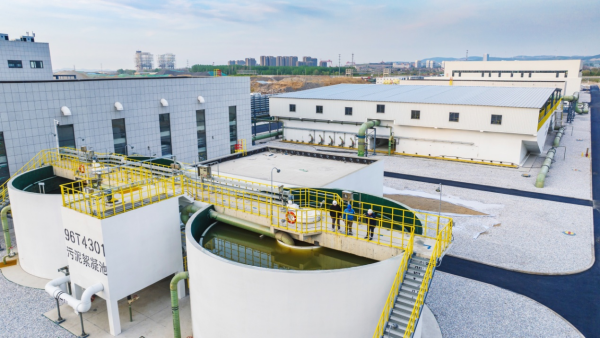The Wanhua Chemical’s Penglai seawater desalination project — China’s largest industrial membrane-based desalination initiative — has kicked off operation.

A view of the Wanhua Chemical’s Penglai seawater desalination project [Photo/sasac.gov.cn]
Constructed by China Railway Shanghai Civil Engineering Group Co., Ltd., a subsidiary of China Railway Engineering Co., Ltd. (CREC), the project marks a major milestone in alleviating coastal freshwater shortages and enhancing regional water resilience.
A flagship cooperation between Chinese and French enterprises, the project is designed to supply industrial water to the Wanhua (Penglai) New Materials Low-Carbon Industrial Park. The first phase, now operational, delivers 100,000 tons of freshwater per day, saving over 36 million tons of freshwater annually. The second and third phases will each add another 100,000 tons per day in capacity, bringing the total daily desalination capacity to 300,000 tons once fully operational.
The facility adopts advanced reverse osmosis membrane technology — a physical filtration method involving multi-media filtration, two-stage reverse osmosis modules, and pre-treatment via coagulation and sedimentation. Compared to traditional dual-membrane processes, this method improves operational efficiency while reducing environmental impact.
Equipped with energy recovery systems, the project recycles residual energy from discharge streams, reducing energy consumption during desalination. Additionally, by sourcing intake water from nearby power plant cooling systems, the project benefits from pre-heated seawater, further lowering electricity use and carbon emissions. Through automation, remote control, and smart operations, the plant set new standards for green construction, energy efficiency, and intelligent operation.
(Executive editor: Yuan Ting)